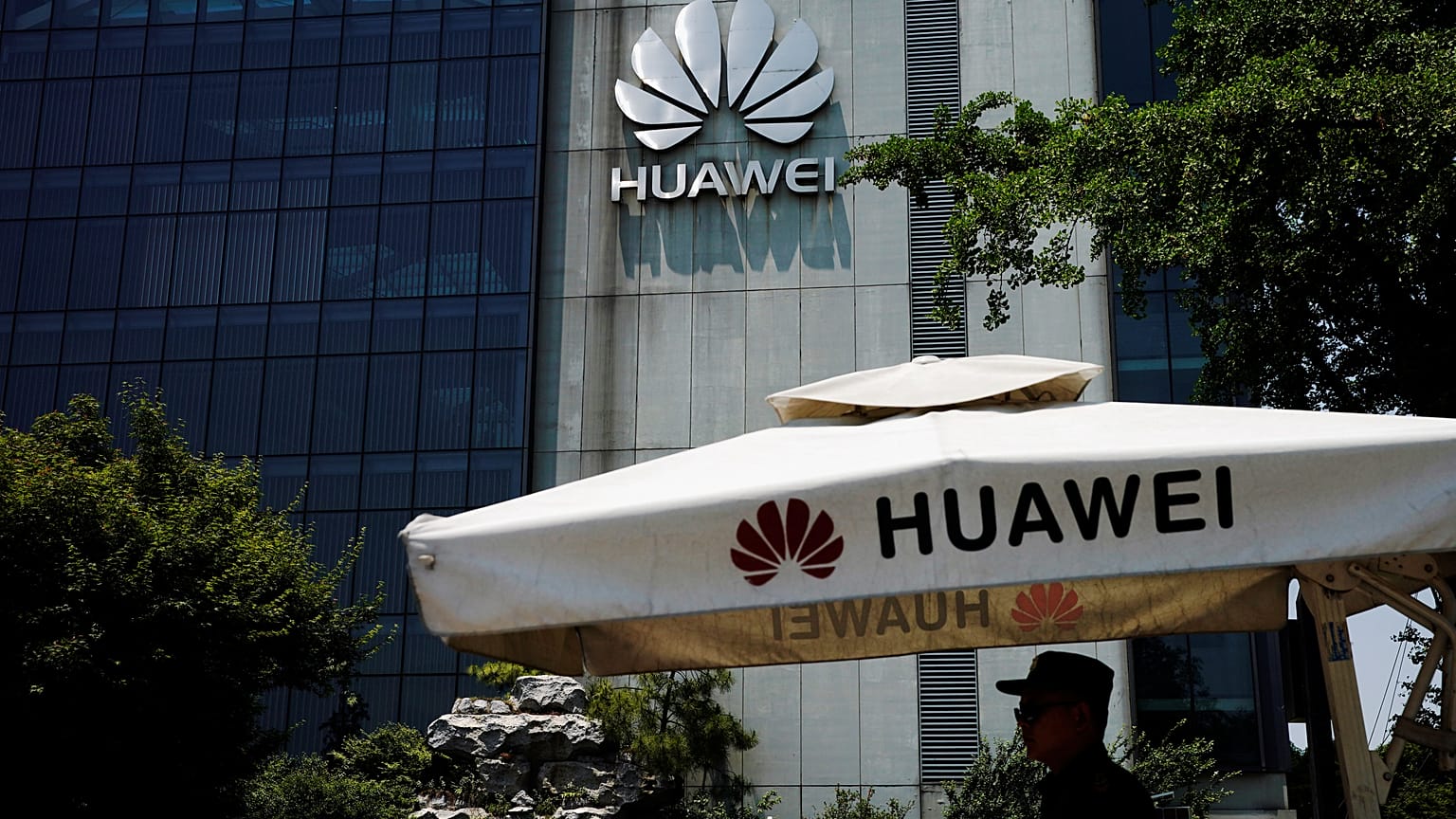Euronews asks national security and China experts about the Huawei security concerns.
US companies began cutting ties with Huawei after the Trump administration added the Chinese telecoms giant to a trade blacklist on Thursday.
Huawei is at the forefront of national security debates about the future of 5G networks.
In early May, UK Prime Minister Theresa May fired defence minister Gavin Williamson after it was revealed he leaked information about UK plans to allow the technology company limited access to 5G networks.
The UK has not released a final decision on whether or not Huawei will be awarded contracts for non-core elements of future 5G networks, but the US has taken a firm stance against the Chinese company.
At a press conference in London on May 8, US secretary of state Mike Pompeo said the US wanted to ensure that American national security information operated "inside trusted networks."
There's been much talk about 5G networks and what they mean for the future of the world economy. But with the excitement about the potential of next-generation technology has come a deluge of concerns about cybersecurity.
Euronews looks at the security challenges of 5G.
What is 5G?
It's the fifth generation of wireless mobile technology. Building on 4G, the next generation of mobile connectivity will allow for faster downloads, wider coverage, and more stable internet access.
Among its otherworldly promises: a surgeon could perform surgeries remotely and self-driving cars could communicate to avoid accidents. Consumers would be able to surf the web from aeroplanes.
Connectivity speeds would be "up to 20 times faster" than what we currently have, said Joyce Hakmeh, a Chatham House research fellow and co-editor of the Journal of Cyber Policy. It's "technology that will connect cities" improving efficiencies in traffic and power grids.
"All of these essential sectors will be connected together, and 5G is crucial for this to happen," Hakmeh said.
In what ways could it be a threat to a country’s security?
Higher connectivity means that key infrastructure will rely on 5G networks. Defence systems and power grids will rely on the faster speeds and interconnected networks.
The next-generation technology could become the backbone of several industries.
But with the remote surgeries and autonomous cars come concerns about data privacy and cyber attacks. As more industries come to rely on 5G networks, preventing cyber attacks will become more important.
More data transfers will also make it difficult to detect malicious behaviour, a US defence department report on 5G networks said. Defence operations will be in contact with overseas commercial 5G networks and systems.
There is also a cybersecurity concern for backdoor access allowing commercial providers or other countries to infiltrate systems, steal information, and spy on others.
Why are people worried about the involvement of Huawei in building 5G networks?
China took an early lead in 5G networks by investing heavily in the new technology. Huawei already has the technology and it's "cheaper than competitors," said Hakmeh.
Yet not everyone is convinced that Huawei will operate independently of the Chinese government.
"The crux of the matter is trust," Steve Tsang, director of the China Institute at London's School of Oriental Studies, told Euronews. Huawei has said it will not cooperate with the Chinese government, but Chinese President Xi Jinping issued a law stating that companies must cooperate with Chinese intelligence.
Huawei considers itself 99% self-owned, but Tsang said, they are "owned by the trade union committee. This comes under the Chinese federation of trade unions which in turn is controlled by the Communist Party of China."
Even though Huawei was involved in some 4G networks, 5G is considered higher stakes.
"You are talking about technology that can potentially shut down part of your power technology down," said Tsang. "It has a real national security part that 4G doesn't have."















